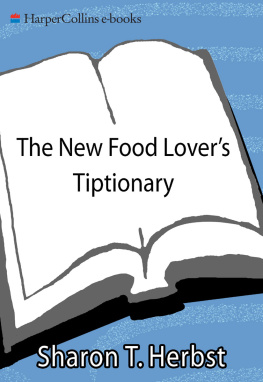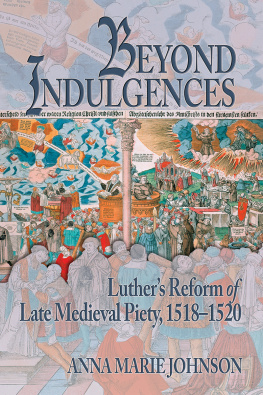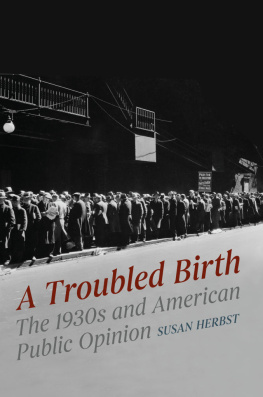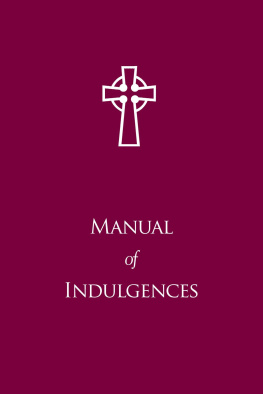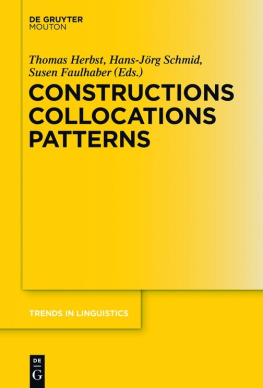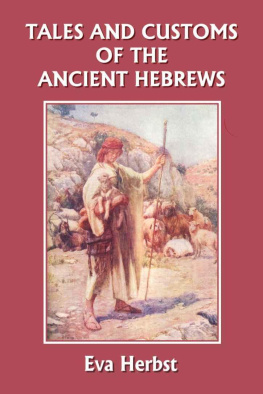Winfrid Herbst - New Regulations on Indulgences
Here you can read online Winfrid Herbst - New Regulations on Indulgences full text of the book (entire story) in english for free. Download pdf and epub, get meaning, cover and reviews about this ebook. year: 2016, publisher: TAN Books, genre: Religion. Description of the work, (preface) as well as reviews are available. Best literature library LitArk.com created for fans of good reading and offers a wide selection of genres:
Romance novel
Science fiction
Adventure
Detective
Science
History
Home and family
Prose
Art
Politics
Computer
Non-fiction
Religion
Business
Children
Humor
Choose a favorite category and find really read worthwhile books. Enjoy immersion in the world of imagination, feel the emotions of the characters or learn something new for yourself, make an fascinating discovery.

- Book:New Regulations on Indulgences
- Author:
- Publisher:TAN Books
- Genre:
- Year:2016
- Rating:3 / 5
- Favourites:Add to favourites
- Your mark:
- 60
- 1
- 2
- 3
- 4
- 5
New Regulations on Indulgences: summary, description and annotation
We offer to read an annotation, description, summary or preface (depends on what the author of the book "New Regulations on Indulgences" wrote himself). If you haven't found the necessary information about the book — write in the comments, we will try to find it.
New Regulations on Indulgences — read online for free the complete book (whole text) full work
Below is the text of the book, divided by pages. System saving the place of the last page read, allows you to conveniently read the book "New Regulations on Indulgences" online for free, without having to search again every time where you left off. Put a bookmark, and you can go to the page where you finished reading at any time.
Font size:
Interval:
Bookmark:

Imprimi Potest:
Edward De Bruin, S.D.S
Provincial Superior
January 13, 1969
Imprimatur:
 Aloysius J. Wycislo, D.D
Aloysius J. Wycislo, D.D
Bishop of Green Bay
Green Bay, Wisconsin
February 5, 1969
Copyright 1970 by
TAN Books and Publishers
Copyright 1977 by
TAN Books and Publishers, Inc.
TAN Books
Charlotte, North Carolina
www.TANBooks.com
1970
Table of Contents
INTRODUCTION
In the new Handbook of Indulgences issued by the Holy See June 29, 1968, there are, among many other noteworthy things, three general concessions in regard to the gaining of partial indulgences. The first of the three is here presented, reserving the other two for future articles.
But first of all let us note the definition of an indulgence as given in the Handbook.
An indulgence is the remission before God of the temporal punishment due to sins whose guilt has already been forgiven, a remission which one of the faithful, properly disposed and under certain definite conditions, can acquire through the Church which as minister of the redemption authoritatively dispenses and applies the treasure of the satisfactions of Christ and the saints.
An indulgence is plenary or partial, depending upon whether it frees one from the whole or from a part of the temporal punishment due to sin,
The concession of a partial indulgence from now on is no longer designated by days or years but simply as a "partial indulgence."
This means that one of the faithful who, with at least a contrite heart, performs a work enriched with a partial indulgence, is granted by the power of the Church that same amount of remission of temporal punishment as he has already obtained by the work itself. In other words, the remission is doubled, and that as often as the prescribed work is performed.
I
We can now proceed to the first general concession mentioned above:
A partial indulgence is granted to one of the faithful who, in the performance of his duties and the bearing of the burdens of life, raises his mind to God in humble trust, addingeven if only mentallysome pious invocation.
The invocation, which is no longer considered a work complete and distinct in itself but an addition to the performance of duty and the bearing of the burdens of life, may be very short, e. g.,
My God, I love Thee.
All for Thee.
Thy Kingdom come.
Jesus, Mary, Joseph, save souls.
Heart of Jesus, I trust in Thee.
This concession, as well as the two that follow, agrees well with the Gospel and with the doctrines of the Second Vatican Council, a fact that is illustrated in the Handbook by appropriate quotations. The first concession takes the faithful by the hand as it were and leads them to follow the admonition of the Savior: "One ought always to pray and never give up." It urges each one to fulfill his duties in union with Christ and in such a way that this union may ever become more intimate. The following texts from Holy Writ are adduced:
Matthew 7:7-8. "Ask, and it shall be given you; seek, and you shall find; knock, and it shall be opened to you. For everyone who asks, receives; and he who seeks, finds; and to him who knocks, it shall be opened."
Matthew 26:41. "Watch and pray, that you may not enter into temptation."
Luke 21:34-36. "But take heed to yourselves, lest your hearts be overburdened with self-indulgence and drunkennes and the cares of this life, and that day come upon you suddenly. For as a snare shall it come upon all that sit upon the face of the whole earth. Watch, then, praying at all times, that you may be accounted worthy to escape all these things that are to be, and to stand before the Son of Man."
Acts 2:42. "And they continued steadfastly in the teaching of the apostles and in the communion of the breaking of the bread and in the prayers."
Romans 12:12. "Be patient in tribulations, persevering in prayer."
I Corinthians 10:31. "Therefore, whether you eat or drink, or do anything else, do all for the glory of God."
Ephesians 6:18. "With all prayer and supplication pray at all times in the Spirit, and therein be vigilant in all perseverance."
Colossians 3:17. "Whatever you do in word or in work, do all in the name of the Lord Jesus, giving thanks to God the Father through him."
Colossians 4:2. "Be assiduous in prayer, being wakeful therein with thanksgiving."
I Thessalonians 5:17-18. "Pray without ceasing. In all things give thanks."
Dogmatic Constitution on the Church of Vatican II, no. 41: All of Christ's faithful, therefore, whatever be the conditions, duties, and circumstances of their lives, will grow in holiness day be day through these very situations, if they accept all of them with faith from the hand of their heavenly Father, and if they cooperate with the divine will by showing every man through their earthly activities the love with which God has loved the world.
Decree on the Apostolate of the Laity of Vatican II, no. 4: This life of intimate union with Christ... is nourished by spiritual aids which are... to be used by the laity in such a way that while properly fulfilling their secular duties in the ordinary conditions of life, they do not disassociate union with Christ from that life. Rather, by performing their work according to God's will they can grow in that union... Neither family concerns nor other secular affairs should be excluded from their religious program of life. For as the Apostle states, "Whatever you do in word or work, do all in the name of the Lord Jesus Christ, giving thanks to God the Father through him." (Col. 3:17).
Pastoral Constitution on the Church in the Modern World of Vatican II, no. 43: This split between the faith which many profess and their daily lives deserves to be counted among the more serious errors of our age... Therefore, let there be no false opposition between professional and social activities on the one part, and religious life on the other....Christians should rather rejoice that they can follow the example of Christ, who worked as an artisan. In the exercise of their earthly activities, they can thereby gather their humane, domestic, professional, social, and technical enterprises into one vital synthesis with religious values, under whose supreme direction all things are harmonized unto God's glory.
II
We now come to the second of the three general concessions. In the Handbook of Indulgences it is stated that a partial indulgence is granted to one of the faithful who, animated by a spirit of faith and with a merciful heart, gives himself or his goods to the service of the brethren who are in need.
By this concession the faithful are drawn to follow the example and mandate of Christ Jesus by more frequently performing works of charity or mercy. But not every work of charity is thus indulgenced but only those that are for the service of the brethren who are in need, say of food or clothing for the body or of instruction or comfort for the soul. Since such good works are very pleasing to God, they bring great merit to the one who performs them and make satisfaction for the temporal punishment due to sins already forgiven; and such remission is doubled because of the partial indulgence here granted.
The appropriate quotations here adduced by the Handbook from Scripture and from Vatican II are as follows:
Next pageFont size:
Interval:
Bookmark:
Similar books «New Regulations on Indulgences»
Look at similar books to New Regulations on Indulgences. We have selected literature similar in name and meaning in the hope of providing readers with more options to find new, interesting, not yet read works.
Discussion, reviews of the book New Regulations on Indulgences and just readers' own opinions. Leave your comments, write what you think about the work, its meaning or the main characters. Specify what exactly you liked and what you didn't like, and why you think so.


